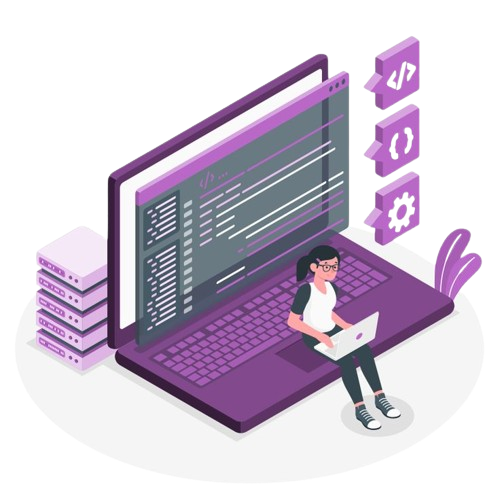What is Ethical Hacking and How Does it Work?

In today’s digital age, cybersecurity is paramount. With the increasing reliance on technology, the risk of cyber threats and attacks looms large. Ethical hacking, also known as penetration testing or white-hat hacking, plays a crucial role in safeguarding against these threats. But what exactly is ethical hacking, and how does it work?
Definition of Ethical Hacking
Ethical hacking involves authorized attempts to penetrate systems and networks to identify vulnerabilities and weaknesses. Unlike malicious hacking, ethical hackers use their skills and knowledge to enhance security rather than exploit it for personal gain.
Importance of Ethical Hacking

In an era where data breaches and cyberattacks are rampant, ethical hacking is indispensable for organizations to identify and mitigate potential risks proactively. By simulating real-world cyber threats, ethical hacking helps in fortifying defenses and minimizing the likelihood of successful cyberattacks.
History of Ethical Hacking
Origins of Ethical Hacking
The concept of ethical hacking traces back to the 1960s when the term “hacker” emerged within the Massachusetts Institute of Technology (MIT) culture. Initially, hackers were individuals with a passion for exploring the capabilities of computer systems without malicious intent.
Evolution of Ethical Hacking

As cyber threats became more sophisticated, the need for proactive cybersecurity measures grew. Ethical hacking evolved as a response to this challenge, with organizations recognizing the value of harnessing the skills of proficient hackers to identify and address vulnerabilities before malicious actors could exploit them.
Skills Required for Ethical Hacking
Technical Proficiency
Ethical hackers must possess a deep understanding of computer systems, networks, and programming languages. Proficiency in areas such as penetration testing, network security, and cryptography is essential for effectively identifying and exploiting vulnerabilities What is ethical hacking and how does it work?.
Problem-Solving Abilities
Ethical hacking often involves thinking outside the box to uncover hidden vulnerabilities and bypass security measures. Ethical hackers must possess strong analytical and problem-solving skills to assess complex systems and devise innovative solutions to secure them.
Ethical Mindset

Perhaps the most critical skill for an ethical hacker is maintaining an ethical mindset. Ethical hackers must adhere to strict codes of conduct and moral principles, ensuring that their actions are lawful, responsible, and aimed at improving security rather than causing harm.
Tools Used in Ethical Hacking
Penetration Testing Tools
Penetration testing tools, such as Metasploit and Nmap, are instrumental in simulating real-world cyberattacks to assess the security posture of systems and networks. These tools help ethical hackers identify vulnerabilities and exploit them in a controlled environment.
Network Scanning Tools
Network scanning tools, such as Wireshark and Nessus, enable ethical hackers to discover devices and services within a network, identify potential security flaws, and gather valuable information for further analysis and exploitation .
Vulnerability Assessment Tools
Vulnerability assessment tools, such as OpenVAS and QualysGuard, automate the process of identifying and prioritizing vulnerabilities in systems and applications. These tools help ethical hackers assess the overall security risk and develop strategies for remediation.
Ethical Hacking Methodology
Reconnaissance
The reconnaissance phase involves gathering information about the target system or network, including IP addresses, domain names, and system configurations. Ethical hackers use various techniques, such as passive reconnaissance and footprinting, to gather intelligence without alerting the target.
Scanning
During the scanning phase, ethical hackers use network scanning tools to identify active hosts, open ports, and services running on the target network. This information helps in identifying potential entry points and vulnerabilities that could be exploited.
Gaining Access
Once vulnerabilities are identified, ethical hackers attempt to exploit them to gain unauthorized access to the target system or network. This may involve exploiting known vulnerabilities, misconfigurations, or weak credentials to gain a foothold.
Maintaining Access
After gaining initial access, ethical hackers strive to maintain persistence within the target environment. This may involve escalating privileges, establishing backdoors, and evading detection mechanisms to ensure continued access for further exploration and exploitation.
Covering Tracks
Finally, ethical hackers cover their tracks by removing evidence of their activities and restoring systems to their original state. This ensures that the intrusion remains undetected and minimizes the risk of retaliation or legal consequences.
Legal and Ethical Framework
Laws and Regulations
Ethical hacking operates within a legal and regulatory framework that defines permissible activities and safeguards against abuse. Laws such as the Computer Fraud and Abuse Act (CFAA) in the United States establish guidelines for ethical hacking and impose penalties for unauthorized access to computer systems.
Professional Codes of Conduct
Ethical hackers adhere to professional codes of conduct, such as the Certified Ethical Hacker (CEH) code of ethics, which emphasize integrity, confidentiality, and accountability. These codes provide guidance on ethical behavior and promote responsible conduct in the field of cybersecurity.
Real-World Applications of Ethical Hacking
Cybersecurity Assessment
Ethical hacking is used to assess the effectiveness of an organization’s cybersecurity measures by identifying vulnerabilities and weaknesses in systems, networks, and applications. By conducting thorough security assessments, organizations can address critical issues and enhance their overall security posture.
Vulnerability Management
Ethical hacking plays a crucial role in vulnerability management by identifying and prioritizing security vulnerabilities based on their severity and potential impact. This enables organizations to allocate resources effectively and mitigate the most critical risks to their systems and data.
Incident Response
In the event of a security breach or cyberattack, ethical hackers play a vital role in incident response efforts. By analyzing attack vectors, identifying compromised systems, and providing forensic analysis, ethical hackers help organizations contain the incident, minimize damage, and restore











































